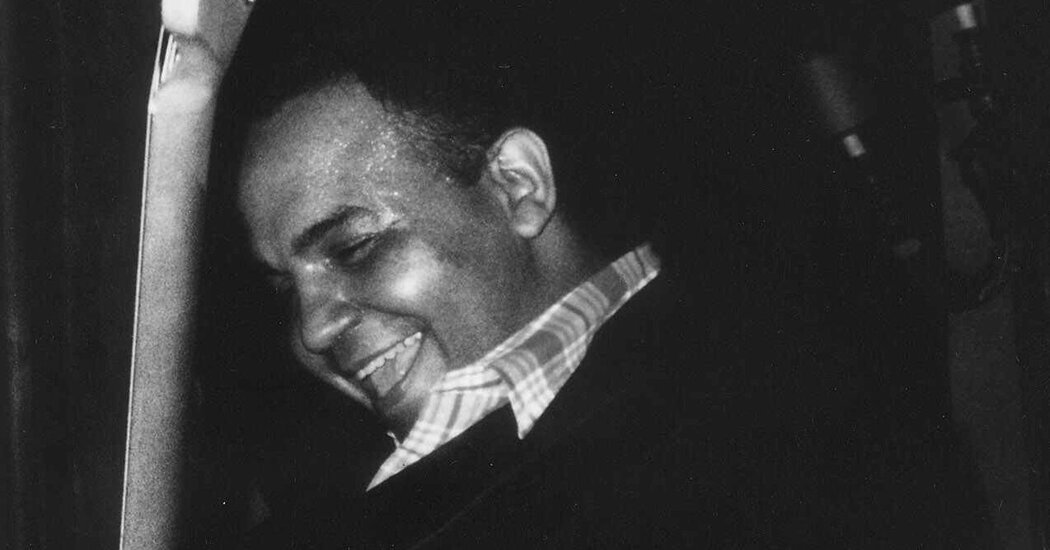
Juan Carlos Formell, an acclaimed singer-songwriter who settled in New York after defecting from Cuba and eventually took over as bassist for his famous father, Juan Formell, in Los Van Van, one of the most influential bands of post-Revolutionary Cuba, died on Friday during a performance in New York City. He was 59.
His death, from a heart attack he suffered onstage at the Lehman Center for the Performing Arts in the Bronx, was confirmed by his romantic and musical partner, Danae Blanco. Mr. Formell had hypertension and arteriosclerosis, she said.
Since fleeing Cuba for New York City in 1993, Mr. Formell had charted his own musical course, releasing five solo albums and earning a Grammy nomination in 2000 for best traditional tropical Latin performance for his debut album, “Songs from a Little Blue House.”
When his father died in 2014, Mr. Formell agreed to carry on his legacy as the bassist for Los Van Van, the Afro-Cuban dance band co-founded by his father. The band’s current lineup also includes his brother Samuel on drums and his sister Vanessa on vocals.
The band was just a few numbers into an energetic set at the Lehman Center when Mr. Formell wandered away from his upright bass, doubled over as if to catch his breath, then lumbered toward the rear of the stage. As the band played on, Abdel Rasalps Sotolongo, the Van Van singer known as Lele, and Javier León Peña, a sound engineer, were helping him offstage when he collapsed near the curtain.
The band took a break for more than half an hour, then made a brief announcement that Mr. Formell was having a health problem, and returned to finish the set, playing for nearly an hour, a friend, the musician Ned Sublette, who was present, said in a phone interview.
Mr. Formell was a fourth-generation member of one of Cuba’s most famous musical families. His great-grandfather Juan Francisco was a popular bandleader. His grandfather Francisco Formell was a conductor of the Havana Philharmonic and the arranger for the Lecuona Cuban Boys, a popular big band starting in the 1930s.
His father, Juan Formell, along with fellow giants of Cuban music, César Pedroso, known as Pupy, and José Luis Quintana, known as Changuito, founded Los Van Van in 1969, fusing traditional Afro-Cuban genres like son cubano with elements of rock, soul and disco.
With the blessing of the Cuban government, the band toured the world for decades, developing a global following. It won a Grammy Award in 2000 for best salsa performance for their album “Llego … Van Van/Van Van is Here.”)
Despite his family name, Mr. Formell’s path to musical success was not easy.
Juan Carlos Formell was born in Havana on Feb. 18, 1964, the eldest of three children of Juan Formell and the cabaret singer Natalia Alfonso.
When he was three weeks old, his parents sent him to live on the outskirts of Havana with his paternal grandparents. His grandfather, the conductor, had been ostracized by the Castro government for being part of the old guard. Mr. Formell told The Los Angeles Times in 2000 that he had been teased by other children for having holes in his shoes.
Nonetheless he set his course toward music, studying at the Alejandro García Caturla and Amadeo Roldán conservatories in Havana, and later at Cuba’s National Art School.
By his teens, he was already composing and studying bass with Andres Escalona of the Havana Symphony Orchestra. He went on to play bass with the jazz pianist Emiliano Salvador.
He was also a talented guitarist and hoped to carve out a career as a singer-songwriter, influenced by Afrocubanismo, the Cuban artistic movement focused on Black identity, as well as the negrista movement in poetry, particularly the work of Nicolás Guillén. Even so, he felt unable to express himself freely under the restrictions of the government-controlled Cuban music industry, his former wife, Dita Sullivan, said in an email.
“While still in my 20s, at a time when most musicians are full of hope,” he said in a 2001 radio interview, “I was resigned to a future of marginalization.”
In 1993, while on tour with the dance band Conjunto Rumbavana in Mexico, he defected, crossing the Rio Grande near Laredo, Texas, and eventually settling in New York City. The transition was not easy.
“When you leave Cuba, you don’t exist,” Mr. Formell said in a 2005 interview with The Chicago Sun-Times. “You come here, you’re invisible. You come here and no one cares. If you want to defect, you’d better have a support system.”
He built a career performing solo and with various ensembles at New York jazz clubs before releasing his Grammy-nominated debut. He followed with “Las Calles del Paraíso” (“The Streets of Paradise”) in 2002 and “Cemeteries & Desire,” a 2005 rumination on the Latin musical flavorings of New Orleans, along with “Son Radical” (2006) and “Johnny’s Dream Club” (2008), which a Village Voice review said wove “an unforgettable spell.”
Mr. Formell’s music, rooted in filin, a romantic, jazz-inflected genre of Cuban popular music, as well as son cubano, a traditional style mixing Spanish and African influences, celebrated the natural beauty of his homeland as well as its complicated history.
“Although my songs don’t specifically talk about politics,” he said in a 1996 interview, “they reflect the reality of Cuba from my perspective and not from the perspective of the system.”
In addition to Samuel and Vanessa, his survivors include his other sisters, Elisa Formell Alfonso and Paloma Formell Delgado, and another brother, Lorenzo Formell González. He and Ms. Sullivan separated in 2012 and divorced in 2021.
In a Facebook post announcing his death, Los Van Van said it would continue its tour of the United States, “paying tribute to Juan Carlos in every performance, every musical note, in every Vanvanero choice as Juanca would have wanted.”













